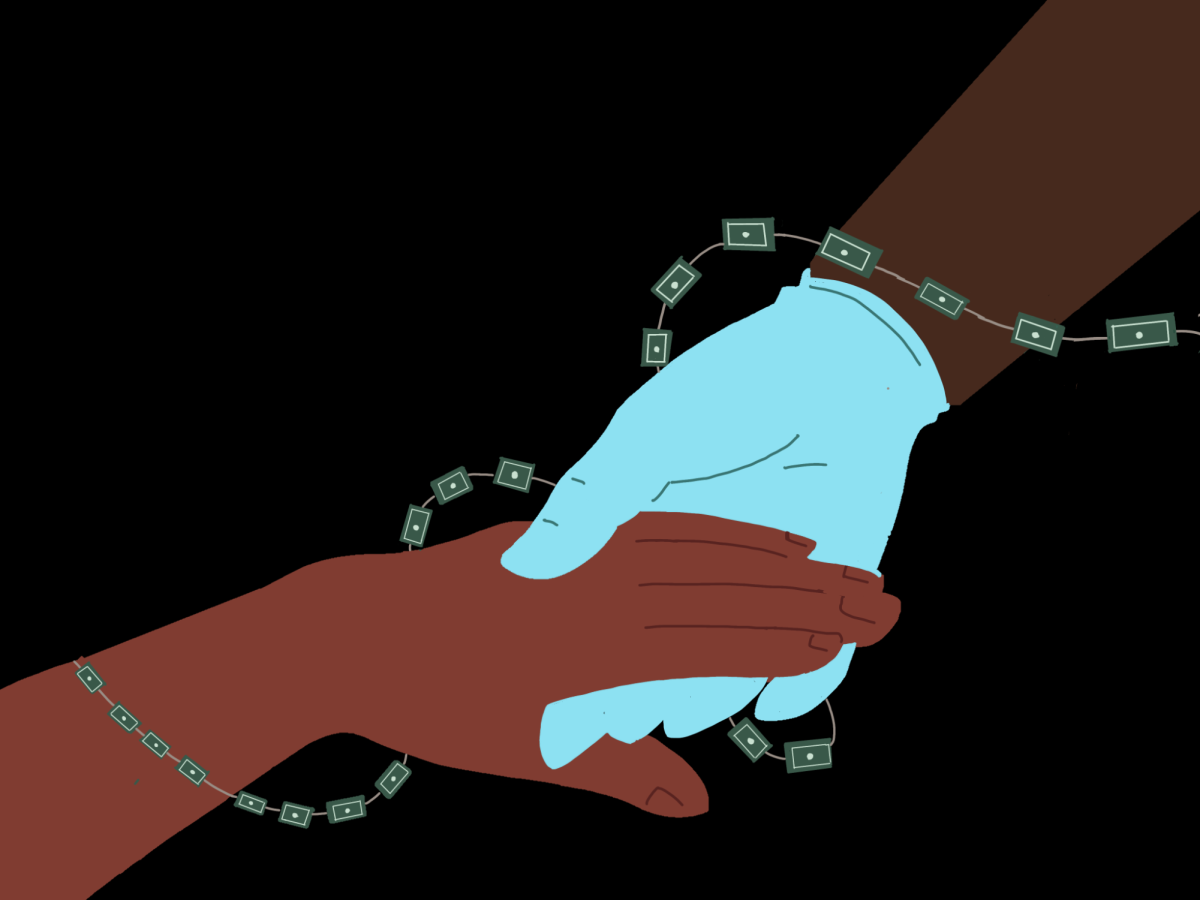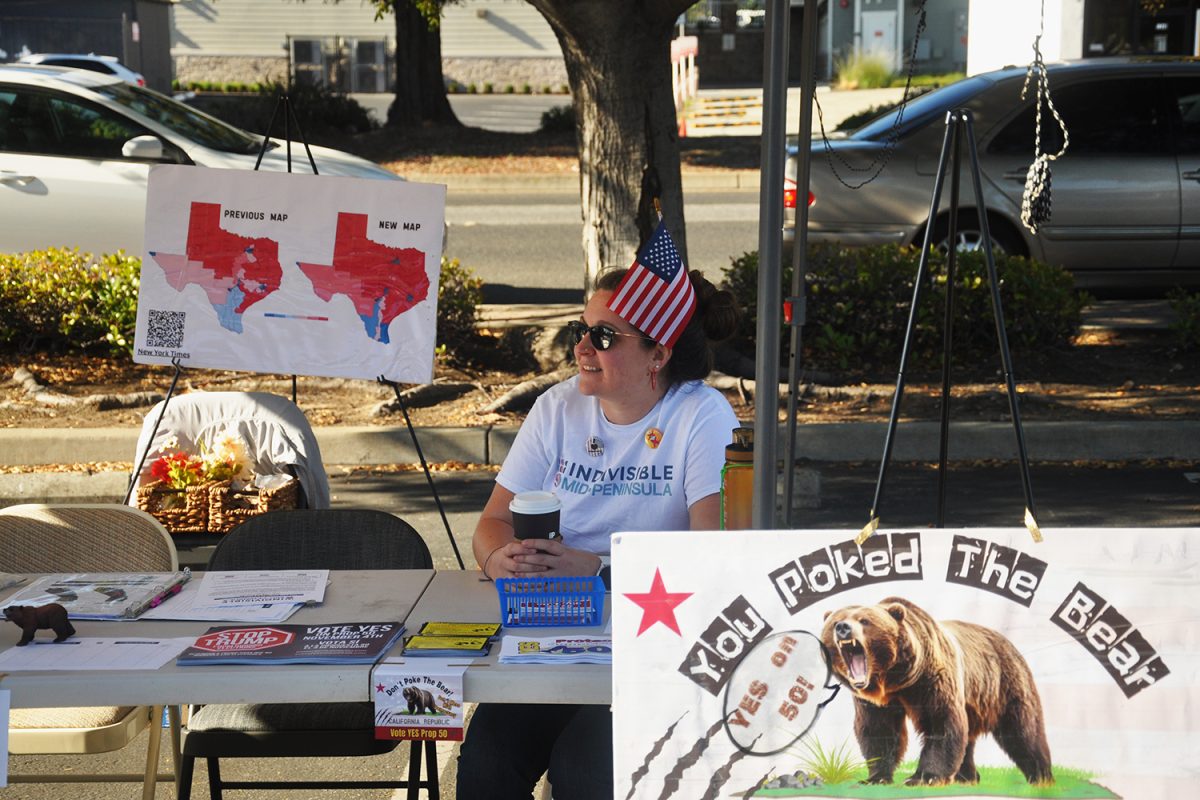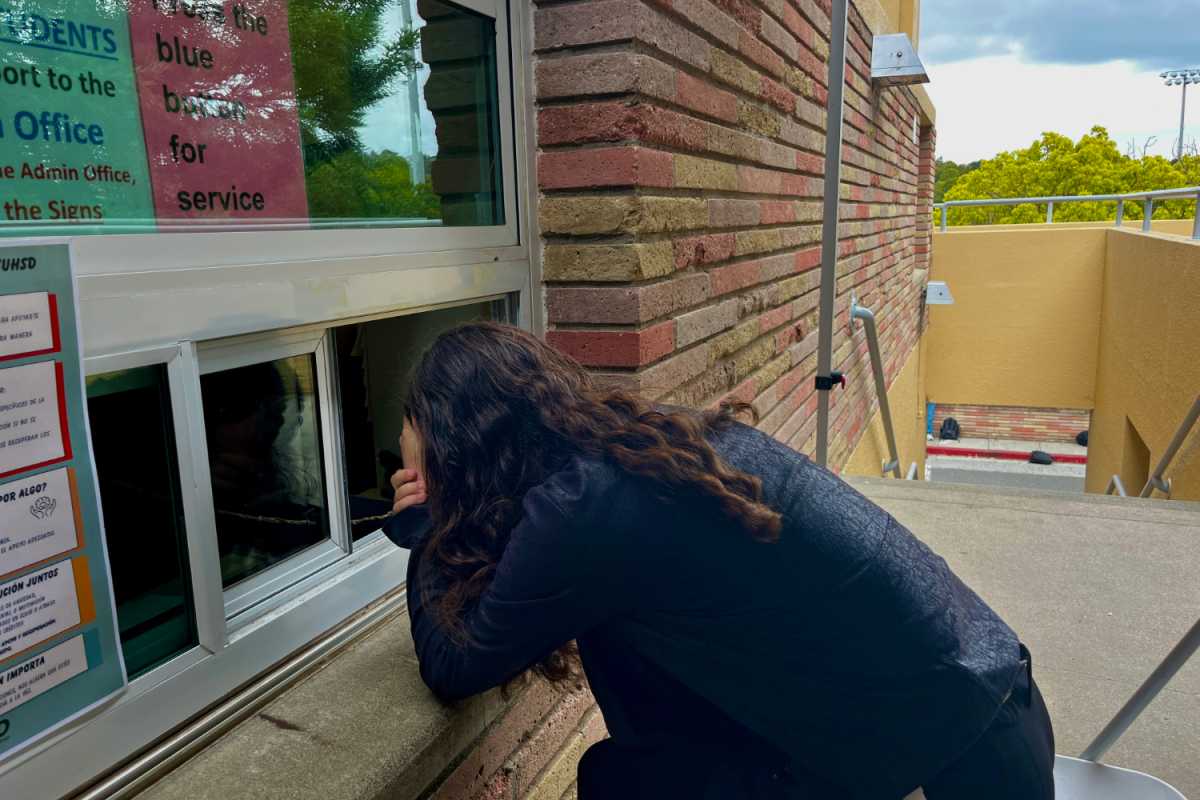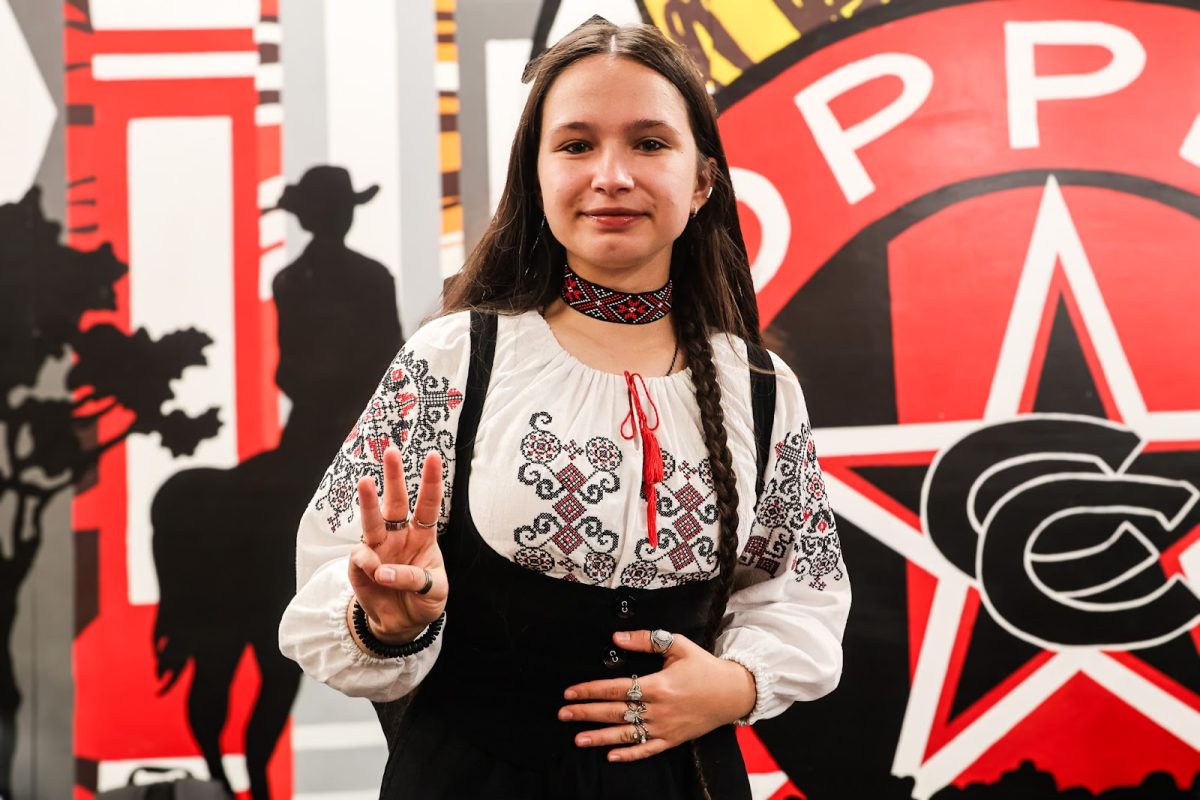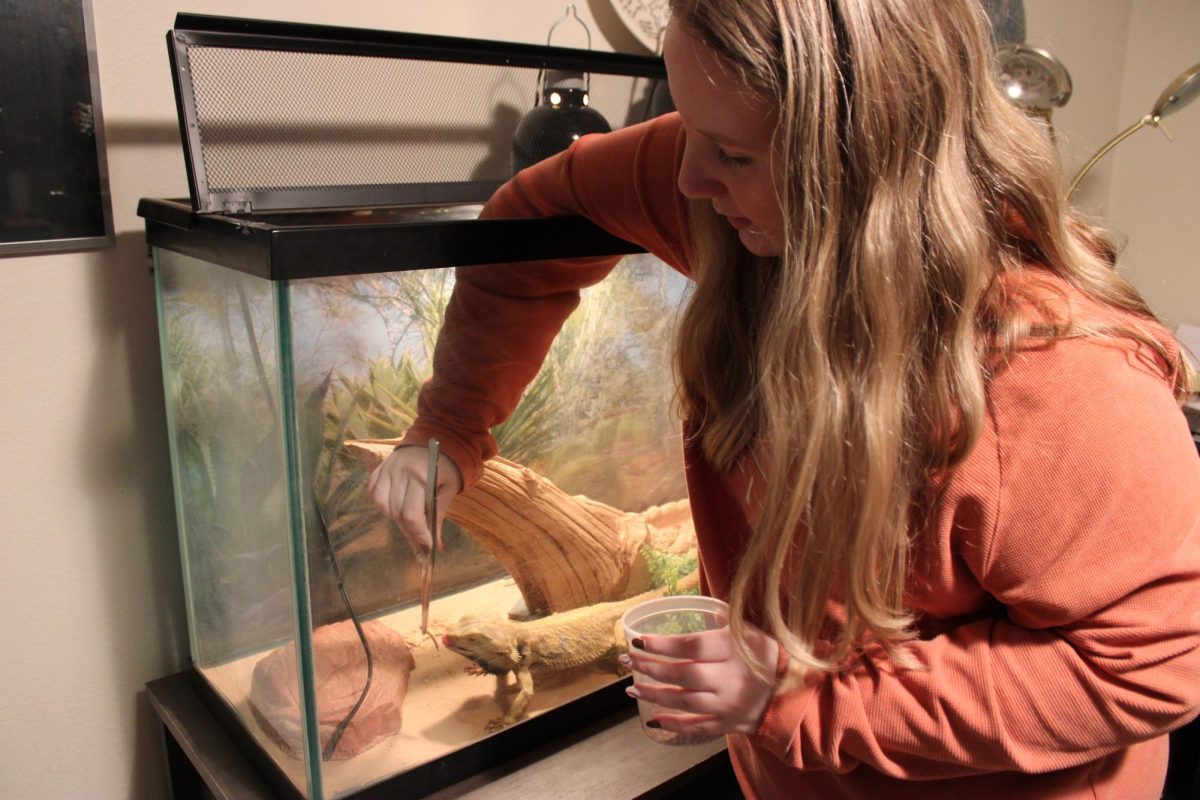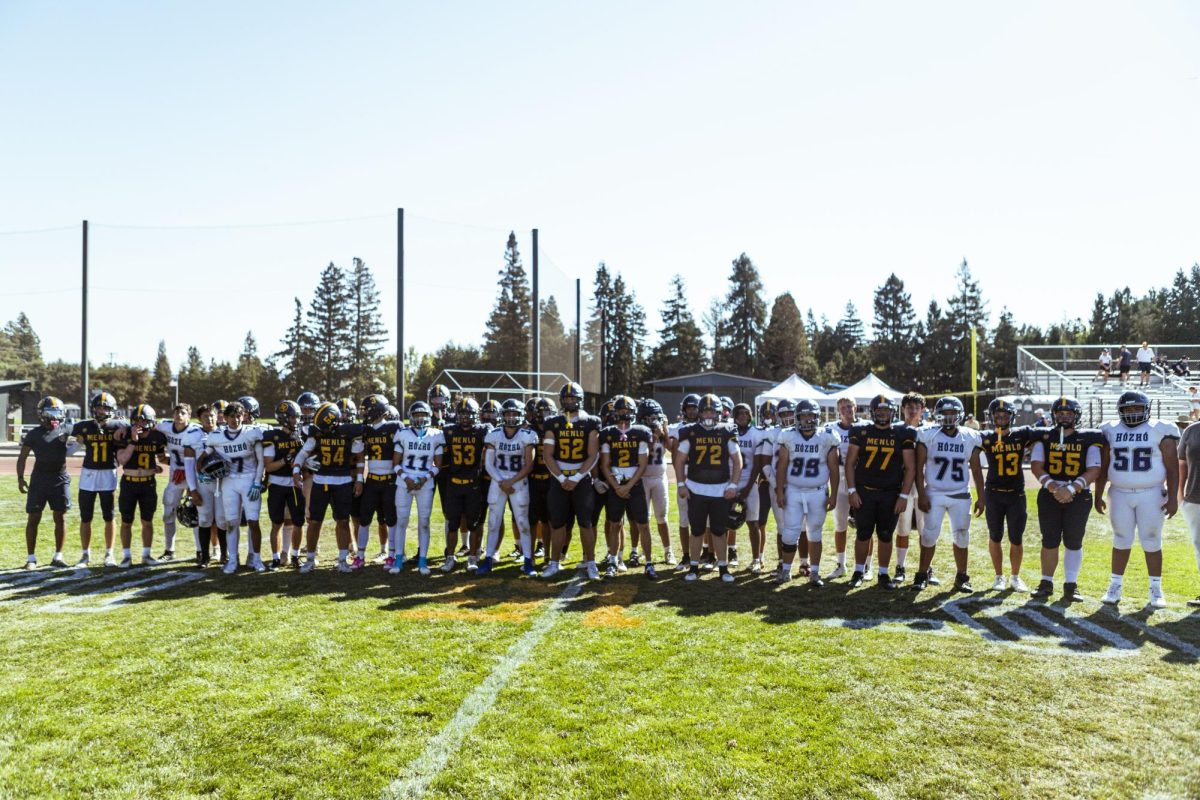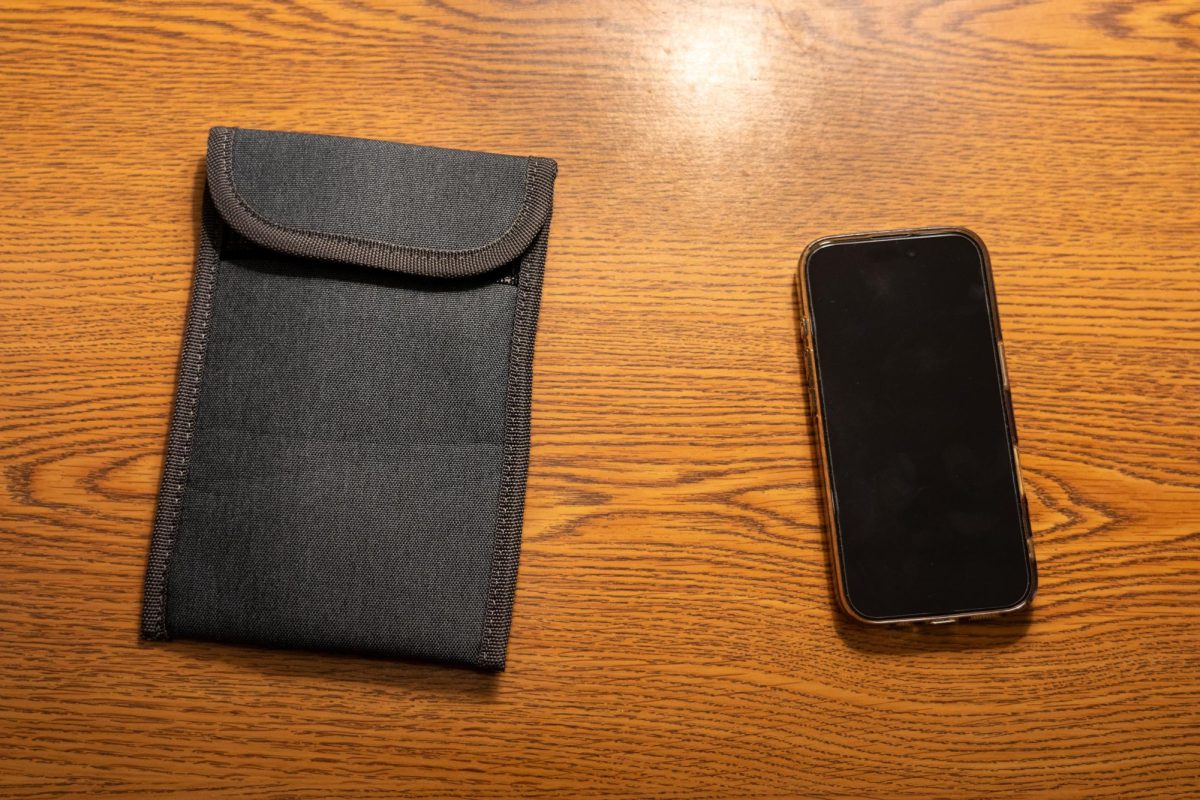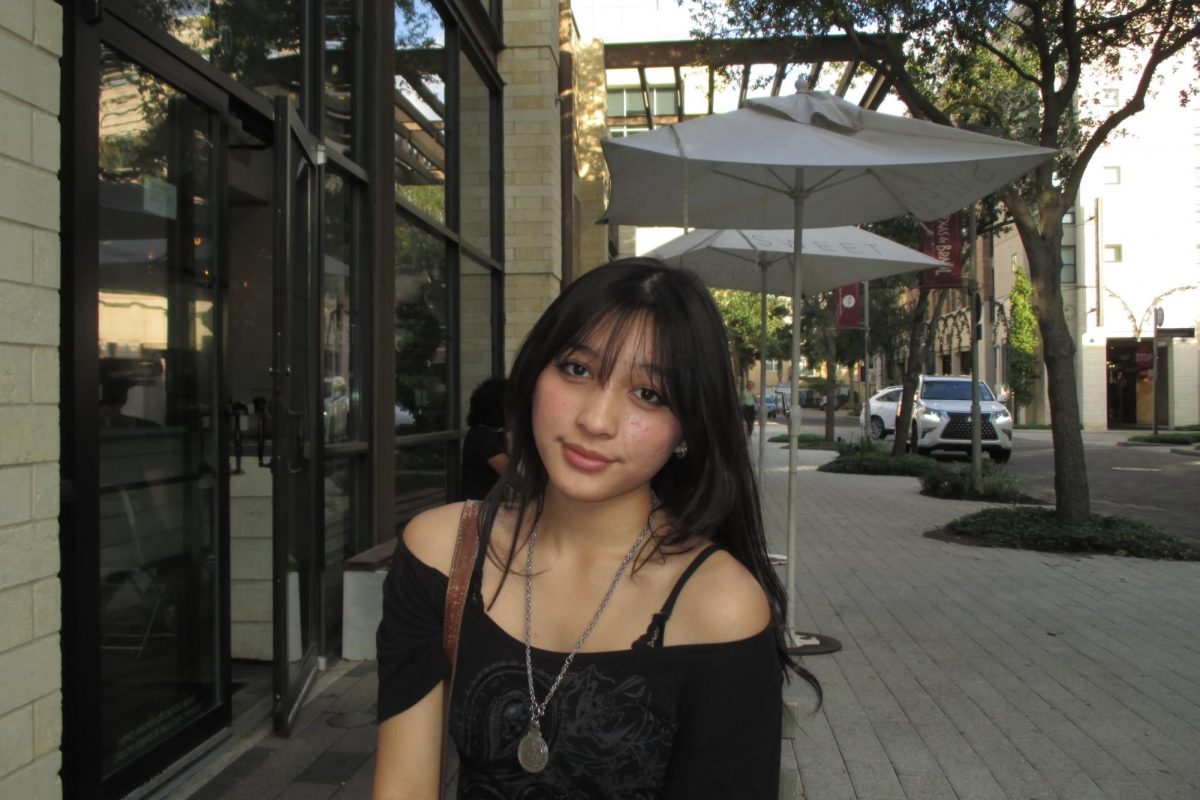As a hostess, it’s her responsibility to serve everyone.
From wealthy politicians to struggling workers.
From old men who ask for her number to a family of three who she invited to her graduation.
From angry customers complaining about wait times to a homeless man whose only request is a cup of water for his terrier.
At the host stand of Outback Steakhouse, senior Tida Suttitanasub welcomes a variety of customers.
But her job at Outback wasn’t her first experience with a restaurant environment.
When she was 11, Suttitanasub worked at her great aunt’s Meun Fan Thai Cafe whenever she visited her in Santa Barbara over the summer. The only interaction Suttitanasub had with the customers was giving them their food – she barely even talked to them.
However, Suttitanasub’s first exposure to the restaurant industry was when she was just a couple months old. Her parents opened a Baytown Seafood restaurant in Wharton, Texas. Her father came to America looking for opportunities and began his business in Wharton because he thought the town would massively expand. Why? Because Wharton had just built a Buc-ee’s.
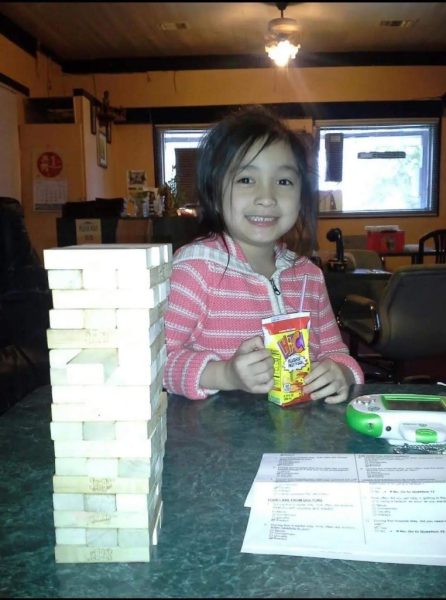
Suttitanasub and her family lived right next door to their restaurant. But Suttitanasub didn’t help out with the business much: she just ate the food in the kitchen.
That was until Suttitanasub’s first year in preschool when her mother was diagnosed with three different types of cancer. Her mother battled the disease for four years.
“We were basically just back and forth between the hospital,” Suttitanasub said. “We put her in a nursing home at one point, but it was terrible because they were just dosing her up on medication. She was constantly overdosed on her medications, and it was causing her to be a different person. So we decided to take her out of the nursing home and put her in hospice at our house.”
Then one summer break when Suttitanasub was 8 years old, she was catching geckos and lizards on the front porch while her mother watched her from a wheelchair. She told Suttitanasub she was scared, so Suttitanasub hugged her mother. They spent a while comforting each other. That would be their last conversation.
Suttitanasub went back inside to watch TV. Her dad came inside the house to drop off some fruit, and her mother was on the floor.
Her mother’s death changed a lot of things for Suttitanasub. Her father shut down the restaurant and leased out the building. The steakhouse became a casino. Her brother moved to Houston. Suttitanasub started home-schooling in third grade, since she couldn’t take getting bullied at school and then coming back home with no one to comfort her.
“I think that [my mother’s death] not only impacted me, but also my father a lot,” Suttitanasub said. “She was his business partner, his wife, the mother of his kids, so he became very lost. He was, like, ‘I can’t stay here anymore. I need to go to Thailand.’ My dad decided to leave me and just drop me off at my brother’s house in Houston.”
At first there was tension between her and her brother’s family. Her brother and his wife were just in their mid-20s. They didn’t ask to take in Suttitanasub. She also brought about legal trouble as well. She had difficulty enrolling in school because her legal guardian, her father, was living in Thailand. But gradually, her brother and his wife became a sort of replacement mother and father to Suttitanasub.
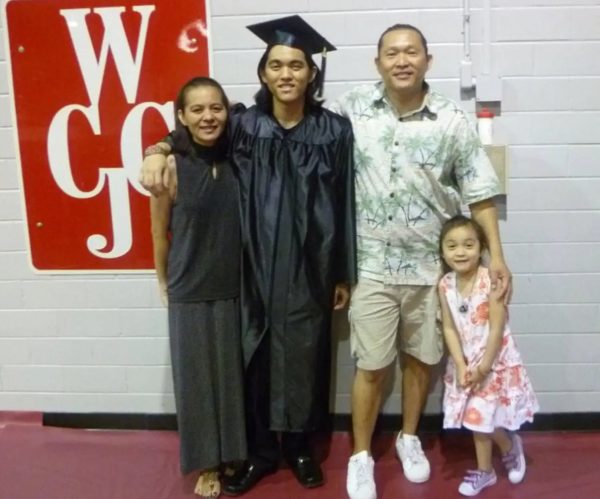
When she turned 16, Suttitanasub wanted “experience in the real world,” so she got a job at Outback Steakhouse, where her brother had already been working for the last nine years.
“When I first got the job, I felt like I was constantly depending on my brother,” Suttitanasub said. “In getting older, I saw that I really needed to do something, because I couldn’t have all the financial responsibilities pinned on him. I felt really inclined to get this job because I wanted to help out and alleviate the burden of at least one person off of his chest.”
At first, she didn’t understand why her brother would stress over his job. But after working at Outback with him, Suttitanasub realized that it wasn’t as easy as she thought, and that her brother had every reason to be upset when he came home.
“Ever since I started working, my relationship with my brother has been a lot better,” Suttitanasub said. “I’ve become more open with him, and I feel like we’re a lot closer. I feel like we work really well together, just because I know him personally, but also because I know how he gets under stress. Working with him makes it a lot easier on me, because he knows how I am too [when I’m stressed].”
Suttitanasub also helps take care of her brother’s children: Junior, 7; Lisa, 11 and Lucas, a 1-year-old affectionately dubbed “Baobao” by Sutittanasub. Her niece and nephews refer to her as their “Tida” instead of their aunt.
“I’m a big influence in their lives,” Suttitanasub said. “They’ve taken a lot of my interests.”
For example, every time Suttitanasub buys a pack of press-on nails, her niece is always quick to ask if they can match. Her niece also wants to become a cheerleader, just like how Suttitanasub was a part of the school cheerleading team in elementary school. Her nephew has also followed in Suttitanasub’s footsteps, becoming obsessed with Minecraft, a game that Suttitanasub loves to play.
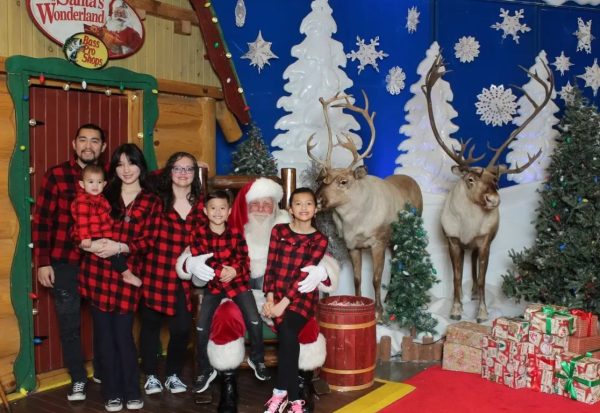
Besides purchasing school supplies and Robux for the children with the money she earns from her job, Suttitanasub teaches them to say “ma’am” and “sir” instead of “bruh” and “man.” Similarly, she always addresses her customers with the titles “ladies” and “gentlemen.”
“It feels a little bit more polite, and also it makes [my customers] feel fancy,” Suttitanasub said. “Because gentlemen and ladies, to me, are people that are really well mannered. And when I first meet people, I don’t want to automatically assume that they don’t have manners and they don’t know how to go out and eat.”
While Suttitanasub grew up treating others with respect due to her Thai-Chinese culture, she credits her job with teaching her confidence and self-respect.
“Before, I would let people step all over me,” Suttitanasub said. “After working at this job, I realized that it’s okay to tell people no. I need to not let people step all over me because if I did, and then they get upset at me, and I just take it, [then] I’m going to be in a bad mood. I can’t go through a shift like that.”
When she first started working at Outback, she was shy and afraid to crack jokes with customers. As a hostess, her manager would tell her that she was supposed to be the “face of the restaurant.”
“If I were to talk the way I talked to the customers at my great aunt’s restaurant, I’m pretty sure I would not be making any money,” Suttitanasub said.
Working shifts alone helped to improve her social skills.
“It just forced me to be even more nice, because there’s no other people to accommodate for what I lack in,” Suttitanasub said. “I realized then that I need to be good by myself. I need to better myself if I want to go to work, have a good attitude and make money.”
Besides communicating with customers, Suttitanasub also makes sure all her co-workers are on the same page. Her co-worker Tristian Price said she “does more than what a normal host would do.”
“She’s basically quarterbacking the whole front end,” Price said. “She’s a three-in-one. She’s like a busser, a host and a support at the same time.”

Suttitanasub also helps her co-workers by talking to them calmly and asking if they need anything. Even though she didn’t gain confidence by talking to customers from her childhood food industry experiences, she did get used to the bustling environment of a restaurant.
“In a restaurant, everything is really loud,” Suttitanasub said. “Everybody can get very overstimulated very easily. I try my best to help people not stress out as much, because it ruins their money, [and] then it ruins my money.”
One time, a table of 10 came into the restaurant while Price was having family issues and the restaurant was very busy. He had an important phone call to make even though he had to set the table. Suttitanasub reassured Price that she was there for him. “We got your back. Whatever you have to do, just let me know,” she told him.
“It really helped me out and calmed me down, knowing that it was going to be alright,” Price said.
Price’s first impression of Suttitanasub was that she was very smart and very mature. He said he was shocked when he learned that she was 16.
“Most kids who haven’t matured would usually kind of freak out and panic in high stress environments, but she’s usually more the one who’s calming older people down and trying to get them in line,” Price said.
Suttitanasub also finds support from her co-workers. She considers them another family.
“I see my co-workers just as much as I see my family at home,” Suttitanasub said. “I’m at work for more hours in the day than I sleep. These relationships I have with them are really important because they have really helped me not to dread coming to work. I’m always excited to go to work because I know that there are going to be people there that I love.”
Price sees Suttitanasub as his little sister. Once, he stayed the night at her brother’s house, where they watched videos on Instagram and watched Suttitanasub play Overwatch.
“We were dying laughing, actually crying at one point because things were so funny,” Price said. “I feel like Tida and her brother are my family now as well. They’re really easy to be around and are really nice and loving people.”
Suttitanasub also connects with her co-workers through their tradition of parking lot parties. They usually start at 11:30 p.m. or midnight after long, hard shifts. For Mother’s Day, Father’s Day and Valentine’s Day, the Outback staff members order pizza and energy drinks to unwind before going home. When a co-worker finds a new job, they sing and bring cake. Once, they even scheduled a water balloon fight.
“There’s no real way to let go of the stress until I clock out,” Suttitanasub said. “And the parking lot parties mainly are just so that we don’t go home upset.”
Suttitanasub and her co-workers also relax during the Thanksgiving and Christmas potlucks hosted by Outback. Suttitanasub’s favorite part of the potlucks is the connection of eating and talking with her co-workers.
Last Thanksgiving, Suttitanasub made mashed potatoes that everyone loved so much they wanted to take some home.
“That made me so happy,” Suttitanasub said. “I just love sharing my food. Food always tastes better when everybody’s together.”
Through these celebratory events at Outback, Suttitanasub notices how everybody at her work is generous.
“Most of my co-workers are not selfish when it comes to things like food because everybody knows that we’re all struggling,” she said. “We’re all trying to make money. And everybody’s mindset is to help each other out. It just feels like a real family whenever we eat together.”
The Outback staff is close despite their vastly different backgrounds and beliefs. Her co-workers include people who are against alcohol and people who drink all the time. People who don’t understand struggle and are at the job for fun and people that struggle day-to-day.
“I feel like before, I didn’t understand a lot of things going on in the world,” Suttitanasub said. “I used to think there was no way the world could be that cruel. But it is, and there are so many people out there who have experienced that, and talking with them has just opened my eyes.”
What surprised her about the service industry was how people would show up to work with a smile and talk to customers despite whatever was going on in their lives, like if they had a car accident right before a shift or their family member just died. It made her realize that there’s more to everybody besides what’s on the surface.
Suttitanasub said before she started working at Outback, she was stuck in her own bubble, uncaring of anyone besides herself, her friends and her life at school and home.
“I feel like at school a lot of people have the same goal,” Suttitanasub said. “It’s very competitive towards grades, GPA, class rank. But people out there, that’s not really how it is. In Outback, everyone is trying to pay for bills or groceries. One person wants to make it till tomorrow; the other person wants to make a million dollars. There are so many different goals in everybody’s head. It really changed how I viewed everything.”
But to her cousin and gym buddy, senior Kobe Reed, Suttitanasub has always been caring and kind. Suttitanasub always helps her friends who are in rough spots, talking them through their issues and sacrificing her own time. She’s patched up long arguments between friends even when the conflict didn’t involve her.

“Tida has a lot going on, but she makes every decision to try and make people’s lives better,” Reed said. “In every given moment, Tida seems to make the choice to benefit somebody else or the better option, the kinder option. She’s made my life better, and she’s inspired me to be a better person.”
Reed also said that Suttitanasub’s job has led her to shift more of her priorities to herself.
“I’ve noticed she spends a lot more time on her studies,” Reed said. “Her work in the service industry has made her more dedicated. She’s shown that she’s determined to do what she desires.”
Sometimes on weekends, Suttitanasub gets off work at exactly 11 p.m., leaving only 59 minutes to do assignments due at 11:59 p.m. On weekdays, she finishes her homework after helping her niece and nephews go to bed late into the night.
Suttitanasub is interested in pursuing a career involving computers. She is researching how to build her own computer since she can’t afford a PC with good specs. Her HP laptop is littered with window tabs on mice, keyboards, and monitors.
“I believe that Tida’s going to be successful and that she can do whatever she wants,” Price said. “She’s a very smart young woman, and the sky’s the limit for her. I can’t wait to see what she does in the future.”
Suttitanasub recently got promoted from the black slacks of a hostess to the belt and dark blue of a server support. Yet, she still wears the same selection of rings and friendship bracelets, the same shoes worn down to the sole and the same gold heart pendant that was her mother’s necklace.
“I know that the world is not fair, and that I wasn’t exactly given the best opportunities,” Suttitanasub said. “But I’m never the type of person to give up, and no matter how hard things get, I always try to find a way out. That’s kind of what I’ve been doing my whole life: trying to push through. I’m really hard-working, and I’m really strong. That’s what life has taught me.”
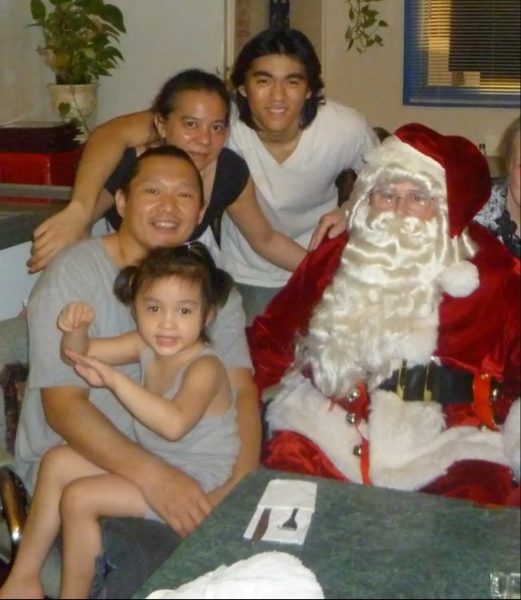
This story was originally published on Three Penny Press on January 8, 2025.

